Op-Ed: Egg Freezing: WTF?*
By Lynn M. Morgan and Janelle S. Taylor
Marcia Inhorn’s recent CNN commentary, “Women, consider freezing your eggs” is certainly right about one thing: “Trying to balance career and family is difficult for many professional women.” Yet the solution Inhorn proposes – egg freezing – is entirely wrong. Egg freezing is a new addition to the repertoire of assisted reproductive technologies, so of course people are intrigued. But egg freezing is also invasive, dangerous, unregulated, and insanely expensive. Worse, it isn’t a social solution, so it cannot address the social causes that make it so difficult to balance career and family.
Let’s review the facts. Just six short months ago (October 2012), the American Society for Reproductive Medicine (ASRM) determined that egg freezing would no longer be considered an “experimental” technology. In taking this step, the professional organization of fertility specialists notably refrained from endorsing the procedure, despite the fact that some of its members have a financial interest in promoting assisted reproductive technologies. Still, the ASRM cautioned that there is “a lack of data on safety, efficacy, cost-effectiveness, and potential emotional risks.” Oocyte cryopreservation, they pointed out, can be an important resource for women who face cancer treatment or other conditions that might cause sterility. While egg freezing may be warranted under those circumstances, even the ASRM warned against “marketing this technology for the purpose of deferring childbearing,” because that “may give women false hope and encourage women to delay childbearing.” The ASRM is adamant that egg freezing is not recommended for elective, non-medical reasons, and certainly women should not postpone childbearing just because they can freeze their eggs.
It is especially alarming, then, that an eminent feminist anthropologist who writes about the gender politics of infertility would recommend invasive, elective surgery for the women graduate students she supervises. Inhorn is known to be a supportive, generous mentor and role-model, and students understandably seek her advice. When they ask how to work children into an academic career, Inhorn writes, “I usually tell them to look for a supportive partner who has a nontraditional, flexible career path. But now I am going to add: Consider freezing your eggs as you approach your mid-30s, so you can choose when to become a mother.”
This advice is problematic on several levels, as Inhorn admits. She acknowledges that egg freezing is expensive – up to $18,000 – and that it works best when women are in their 20s and early 30s. But she ignores the health issues. Young women should not risk their health for the slim possibility that they might, one day, face infertility. Egg retrieval requires that a woman pump her body full of hormones, which can result in nausea, bloating, abdominal pain, or a dangerous condition called hyperstimulation of the ovaries. No one really knows how many women suffer from these or other side effects, because there is no federal regulation or oversight of the industry. There have been no long-term studies of the health effects of egg retrieval. The anecdotal accounts written by egg donors are sobering, sometimes harrowing. Under the circumstances, they should be on every female Yale student’s required reading list.
Beyond the health risks to individual women, the problem with egg freezing is that it represents an individualized, private, expensive, high-tech medical solution to what is fundamentally a collective, social problem. Inhorn knows this. She says egg freezing “does not solve the unfavorable employment policies that cause women to lean out of their careers.” That’s an understatement, even for the relatively privileged cadre of college teachers. According to the American Association of University Professors (AAUP), the average age for attaining a doctorate is 33 and the average age for receiving tenure is 40. This means that “the period of most intensive work to establish an academic career coincides with prime child-rearing years,” leading AAUP among others to call for institutional and policy changes to better accommodate work-family balance.
By expressing such enthusiasm for egg-freezing, Inhorn falls into a trap described by feminist philosopher Angel Petropanagos, who wrote in 2010 that egg freezing potentially reinforces patriarchy while “leaving the problematic social structures largely intact.” A scholar of Inhorn’s stature, given a platform such as CNN, has a responsibility to speak the truth. And the truth behind feminist struggles is that achieving a more just society will require paid parental and sick leave, affordable child care, comprehensive health insurance, immigrant health care, and adequate wages. Instead of advising students to freeze their eggs, how about joining the fight for better working conditions at our nation’s colleges and universities? How about calling for federally financed studies of the health effects of egg donation? If we had these things, maybe women would find it easier to reconcile family and career.
You might say it’s a chicken and egg problem. What we need is social change; to call frozen eggs a solution is just plain chicken.
*(Why’s This Feminist?)
________________________________________
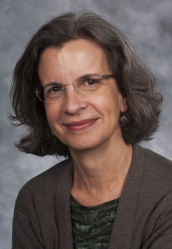 Lynn M. Morgan is Mary E. Woolley Professor of Anthropology at Mount Holyoke College and author of Icons of Life: A Cultural History of Human Embryos.
Lynn M. Morgan is Mary E. Woolley Professor of Anthropology at Mount Holyoke College and author of Icons of Life: A Cultural History of Human Embryos.
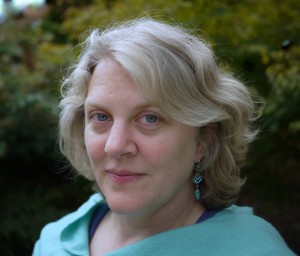 Janelle S. Taylor is Associate Professor and Chair of Anthropology at the University of Washington. She is the author of The Public Life of the Fetal Sonogram: Technology, Consumption, and the Politics of Reproduction and co-editor of Consuming Motherhood.
Janelle S. Taylor is Associate Professor and Chair of Anthropology at the University of Washington. She is the author of The Public Life of the Fetal Sonogram: Technology, Consumption, and the Politics of Reproduction and co-editor of Consuming Motherhood.

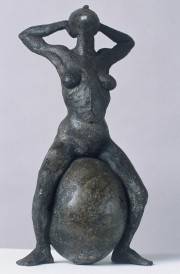
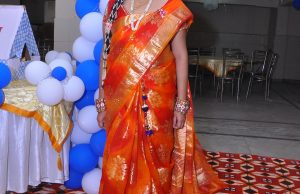

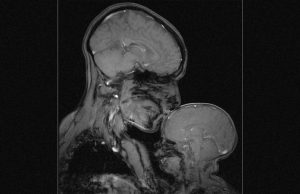
Pingback: Op-Ed: Egg Freezing: WTF?* | Ethnographic Emergency
Pingback: Op-Ed: Egg Freezing: WTF?* | Ethnographic Emergency
Pingback: Op-Ed: Egg Freezing: WTF?* | Ethnographic Emergency
Pingback: Op-Ed: Egg Freezing: WTF?* | Ethnographic Emergency
Pingback: Hot Debate Over Frozen Eggs | anthropology and practice
Pingback: Hot Debate Over Frozen Eggs | anthropology and practice
Pingback: Hot Debate Over Frozen Eggs | anthropology and practice
Pingback: Hot Debate Over Frozen Eggs | anthropology and practice
Pingback: anthropologyworks » Anthro in the news 4/22/13
Pingback: anthropologyworks » Anthro in the news 4/22/13
Pingback: anthropologyworks » Anthro in the news 4/22/13
Pingback: anthropologyworks » Anthro in the news 4/22/13
Pingback: Commentary: Egg Freezing | Women Historians of Medicine
Pingback: Commentary: Egg Freezing | Women Historians of Medicine
Pingback: Commentary: Egg Freezing | Women Historians of Medicine
Pingback: Commentary: Egg Freezing | Women Historians of Medicine
Pingback: Is egg freezing feminist? | Medical Anthropology at Oakland U.
Pingback: Is egg freezing feminist? | Medical Anthropology at Oakland U.
Pingback: Is egg freezing feminist? | Medical Anthropology at Oakland U.
Pingback: Is egg freezing feminist? | Medical Anthropology at Oakland U.